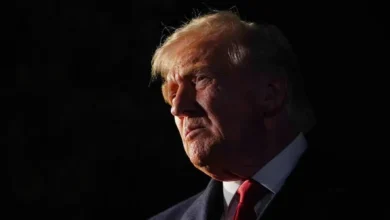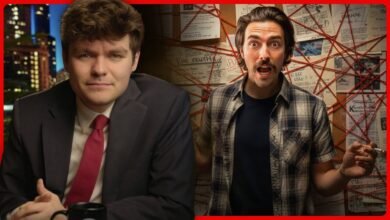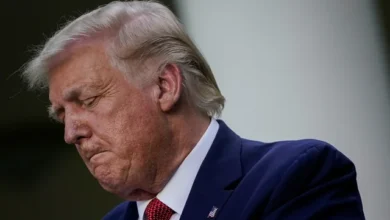
South Park’s Unforgivable Sin: Why a Tariff Joke Ignited a MAGA Firestorm
For over a quarter of a century, South Park has thrived in the fires of controversy, building its enduring legacy on the sacred principle that nothing is sacred. It has been a cultural lightning rod, an equal-opportunity offender that has gleefully skewered Hollywood elites, environmental activists, religious institutions, and political figures from every point on the spectrum. For many fans, particularly those on the right, the show has long been seen as a rare and vital bastion of anti-establishment, anti-“woke” comedy in an entertainment landscape they view as increasingly liberal and monolithic.
But a recent episode appears to have crossed an invisible, yet deeply felt, line. By taking aim at one of the cornerstone policies of Donald Trump’s presidency—trade tariffs—the show ignited a firestorm of fury from some of its most ardent MAGA-supporting fans. The backlash was swift and visceral, centered on a singular, damning accusation: that Trey Parker and Matt Stone, the iconoclastic creators of the series, had finally sold out. The cry of betrayal echoed across social media: South Park was now “bought and paid for!”
This eruption of anger is more than just a fleeting online squabble over a cartoon. It’s a fascinating case study in the shifting nature of satire, the power of political identity, and the impossible tightrope that comedians must walk in a hyper-partisan America. It reveals what happens when a joke is no longer just a joke, but is perceived as an attack on the very foundations of a belief system.
The Joke That Broke the Camel’s Back
The episode in question, titled “The China Probrem,” centers on the show’s perennial everyman buffoon, Randy Marsh. In a parody of protectionist economic policy, Randy, the owner of Tegridy Farms, becomes a vocal supporter of tariffs on Chinese goods to protect his homegrown marijuana business from foreign competition. Wrapped in patriotic fervor, he embarks on a one-man trade war, only to find that his jingoistic crusade leads to absurd and self-destructive consequences. His costs skyrocket, essential farm equipment becomes unavailable, and his simplistic view of global economics crumbles in the face of reality.
The satirical target was clear and classic South Park. The episode wasn’t necessarily a dense, academic critique of macroeconomic policy. Instead, it was a mockery of the oversimplification of that policy—a jab at the populist sentiment that complex global challenges can be solved with simple, feel-good slogans and a healthy dose of nationalistic pride. Randy Marsh has always served as the show’s avatar for the American dad who gets swept up in the latest cultural or political fad, whether it’s gourmet cooking, progressive politics, or, in this case, economic nationalism.
For many viewers, this was standard fare. But for a significant portion of the MAGA base, it was an unforgivable transgression.
The Sting of Betrayal: “They Used to Be on Our Side!”
The core of the outrage stems from a profound sense of betrayal. For years, many conservative fans believed South Park was fundamentally, if irreverently, aligned with their worldview. The show’s relentless mockery of political correctness (personified by PC Principal), its skepticism of climate change alarmism (via Al Gore and ManBearPig), and its scathing critiques of Hollywood hypocrisy made them feel seen. In a culture war where they felt constantly under attack from mainstream media and entertainment, South Park was their trusted, edgy ally. It was the one show that wasn’t afraid to punch left.
The tariff episode shattered that perception. The policy of using tariffs to challenge China and protect American industry is not a fringe idea within the MAGA movement; it is a central pillar of its “America First” ideology. To see this core belief portrayed as the foolish, self-defeating crusade of a character like Randy Marsh felt like a direct and personal attack. It wasn’t a caricature of a politician’s personality; it was a dismissal of a foundational policy.
The accusations of being “bought and paid for” suggest a belief that Parker and Stone could not have come to this satirical conclusion honestly. In this view, the joke wasn’t a product of their long-standing skepticism of all forms of zealotry, but rather a sign that they had finally succumbed to pressure from a liberal Hollywood establishment. The betrayal felt complete. The last bastion of truly independent comedy had, in their eyes, fallen.
The Shifting Goalposts of Satire
What makes this reaction so telling is that South Park has never shied away from targeting Donald Trump. The show spent multiple seasons on a brilliant, overarching storyline where the character of Mr. Garrison slowly and absurdly transformed into a Trump-like figure, complete with orange skin and a bumbling, chaotic presidency. While that satire was sharp, it didn’t provoke the same level of widespread “sellout” accusations.
The difference may lie in the nature of the target. The Mr. Garrison-as-Trump satire was a critique of a man—his personality, his rhetoric, his behavior. It was so over-the-top that it could be enjoyed as a surreal character study. The tariff episode, however, was a critique of an idea—a policy that millions of voters genuinely believe is crucial for the nation’s prosperity and security.
In today’s hyper-partisan environment, political identity is no longer just about who you vote for; it’s about who you are. Beliefs on issues like trade, immigration, and cultural values have become deeply intertwined with personal identity. When a joke targets one of those core beliefs, it is no longer perceived as a critique of a political position, but as a judgment on the person holding it. For this segment of the audience, the line between laughing at themselves and being laughed at was crossed. The topic had become un-laughable.
Ultimately, the fury over the tariff episode says more about the state of our culture than it does about South Park. The show’s comedic philosophy hasn’t changed. Parker and Stone continue to hold up a distorted mirror to American society, mocking the absurdity and hypocrisy wherever they find it. What has changed is the audience. We are now so deeply entrenched in our political tribes that any deviation from orthodoxy, even from our most trusted court jesters, can be seen as an act of war.
South Park is still standing on the same comedic ground it has occupied for 25 years. The tragedy is that the ground underneath all of us has fractured so profoundly that we can no longer agree on what’s funny, or even what’s fair game.



